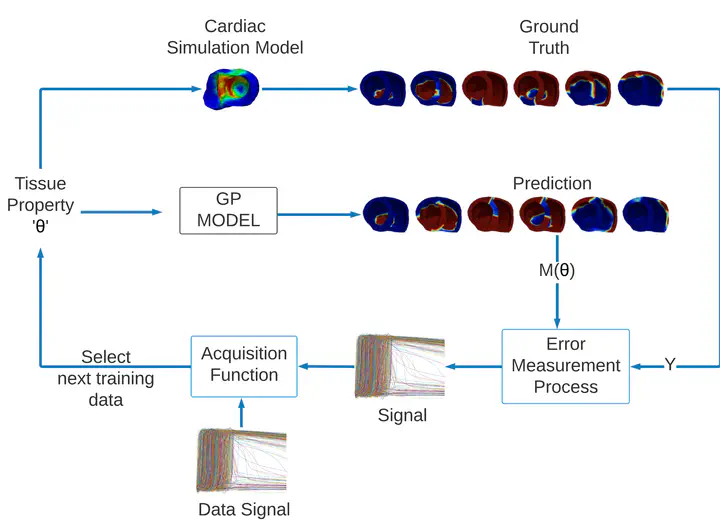Active learning based Cardiac Tissue Parameter Estimation for Personalized model exploiting predictive uncertainty

Abstract
Personalized cardiac models are crucial intervention tools for a multitude of cardiac health issues. As cardiac simulations become more complex and expensive, machine learning (ML) models demonstrated the potential to enable efficient model personalization and cardiac tissue parameter estimation. Prior studies however depend on “globally” accurate ML models trained with large simulation data to predict tissue parameters. Such a global ML model is not only expensive to train, but its success also relies on the assumption that real-world data would fall within the range of the training data. We establish a novel active-learning method for cardiac parameter estimation by steering the training of the ML model towards the unknown region of interest in the parameter space.